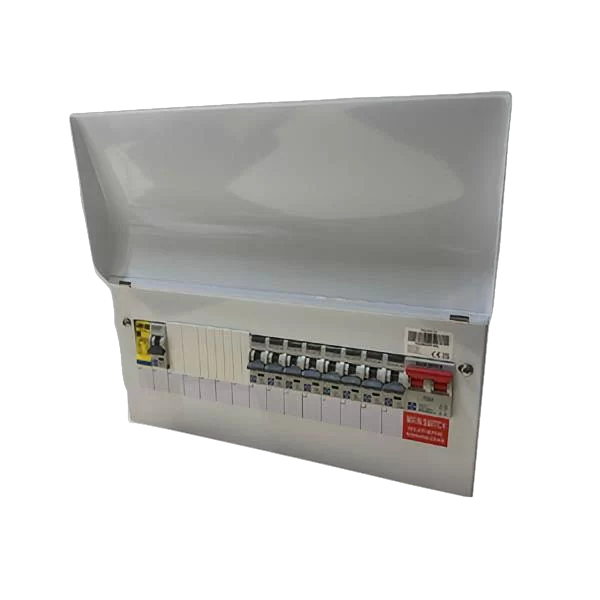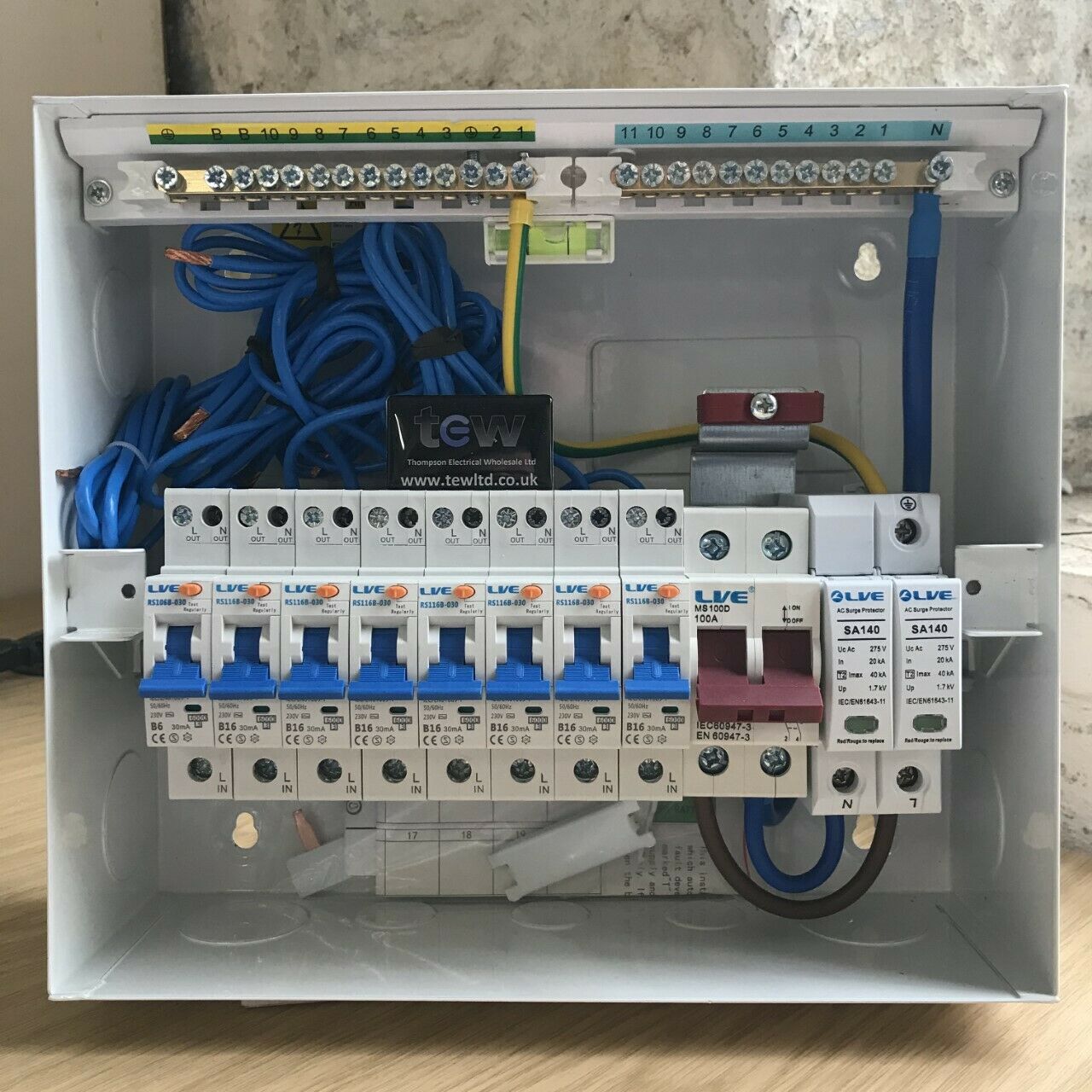How RCBO CONSUMER UNITS Improve Electrical Safety in Residential Spaces
How RCBO CONSUMER UNITS Improve Electrical Safety in Residential Spaces
Blog Article
The Function of Consumer Devices in Effective Energy Management Equipment
Consumer systems are integral to efficient power management systems, working as the main circulation points for electric power within structures. By incorporating breaker, they guard circuits from possible overloads, thus preserving security and avoiding considerable outages. The development of wise modern technologies has even more improved their capability, permitting real-time data tracking and nuanced power usage analysis. This combination not just optimizes energy use but additionally facilitates the consolidation of renewable energy resources, thereby advertising lasting methods. How, then, do these improvements equate to substantial advantages in everyday power administration?
Recognizing Consumer Units

Recognizing the duty of customer systems starts with identifying their crucial function in guarding electric systems. By isolating faults within particular circuits, consumer systems stop prevalent interruptions and prospective fire risks. This seclusion is accomplished through using breaker that journey or integrates that impact when a fault is found, thereby removing the electrical circulation to the influenced circuit.
Additionally, consumer devices promote the orderly distribution of power, boosting the effectiveness of energy use. They enable for the systematic monitoring of electrical loads, which can be particularly vital in commercial and industrial settings where need can rise and fall considerably. Effectively maintained customer devices contribute to the durability of electrical systems and assist in lessening downtime triggered by electrical failures, eventually sustaining the smooth operation of energy-dependent facilities.
Smart Technologies Assimilation

A crucial advantage of wise customer systems is their capability to utilize progressed formulas and maker learning for anticipating analytics. This permits preemptive adjustments based on use patterns, weather prediction, and various other variables, substantially enhancing overall performance. Smart consumer devices help with demand response programs, where energy use can be dynamically adjusted during optimal periods to support the grid and reduce costs.
The combination of renewable power sources, such as solar and wind, is also streamlined through wise consumer systems. By smartly taking care of the intermittency of these sources, these devices ensure a well balanced and reputable power supply. In addition, smart customer systems enhance customer interaction by offering in-depth understandings and remote abilities via mobile applications, fostering a much more proactive approach to power conservation and sustainability.
Tracking Power Usage
Structure on the capabilities of clever innovations integration, monitoring power consumption comes to be a critical emphasis within energy management systems. By leveraging innovative metering facilities (AMI), real-time data on energy use can be accumulated at granular levels, giving valuable insights right into usage patterns and peak demand periods.
Smart meters and Net of Points (IoT) devices play a crucial duty in this monitoring process. These tools can track energy use in real-time, sending data to central systems for analysis. The accumulated data is after that refined with sophisticated algorithms to identify abnormalities, forecast future consumption, and suggest optimization approaches. Additionally, cloud-based options supply scalable platforms for keeping and assessing big datasets, facilitating Click This Link remote surveillance and control.
The combination of these modern technologies not just empowers consumers with in-depth details about their energy usage but additionally sustains energy suppliers in handling load circulation extra effectively. Eventually, continuous and precise tracking is crucial for achieving power efficiency, cost savings, and sustainability goals within energy administration systems.
Optimizing Device Usage

One effective method involves determining optimal and off-peak hours to shift energy-intensive activities, such as washing or dishwashing, to times when energy demand is reduced. This not just minimizes stress on the grid however additionally takes advantage of lower energy tolls. Additionally, integrating artificial intelligence formulas enables anticipating upkeep, guaranteeing home appliances run at optimum efficiency and lengthening their life expectancy.
Power management systems can also incorporate user-specific preferences and habits to tailor appliance use schedules. For instance, smart lighting systems can readjust click site brightness based on tenancy and natural light schedule, while a/c systems can keep convenience levels without too much energy usage.
Promoting Sustainability
Promoting sustainability within power monitoring systems entails not just improving efficiency yet likewise cultivating environmentally accountable methods. Consumer devices are important to this process, as they offer real-time data and control devices that enable individuals to monitor and lower their power usage. By leveraging advanced innovations, consumer devices can recognize energy-saving possibilities and help with the assimilation of sustainable energy resources like solar and wind power.
One vital element of advertising sustainability is informing consumers on the advantages of accountable power usage. Through comprehensive insights supplied by customer units, individuals can make educated choices that reduce their carbon footprint. These devices can recommend optimal times for operating high-energy appliances based on grid need and renewable energy availability, thereby reducing dependence on fossil fuels.
In addition, customer systems support the adoption of wise grid innovations, which improve the general efficiency and integrity of energy distribution. By making it possible for two-way interaction between customers and utility providers, these systems can dynamically get used to power needs, minimizing waste and promoting the usage of sustainable power techniques.
Verdict
Consumer devices, as indispensable parts of power administration systems, substantially improve electrical safety and performance within buildings with circuit protection and clever innovation integration. Real-time data surveillance and evaluation helped with by these devices enhance power consumption and device usage. In addition, the unification of renewable energy resources promotes sustainable practices, adding to reduced total power usage and reduced carbon footprints. Subsequently, customer units play a vital role in progressing both power description effectiveness and environmental sustainability.
Advancements in clever innovations have actually transformed the capacities of power administration systems, particularly through the combination of wise customer devices.Building on the capabilities of smart innovations combination, keeping track of energy usage ends up being an essential focus within energy management systems.Effective appliance usage optimization is an important element of power administration systems, intending to boost efficiency and reduce unnecessary energy intake.Consumer units, as integral elements of power management systems, substantially improve electric safety and security and efficiency within buildings through circuit security and wise technology integration. Furthermore, the incorporation of sustainable power resources promotes sustainable practices, contributing to minimized general power intake and lower carbon footprints.
Report this page